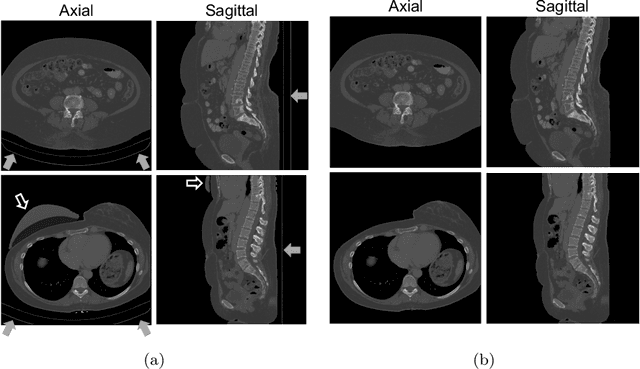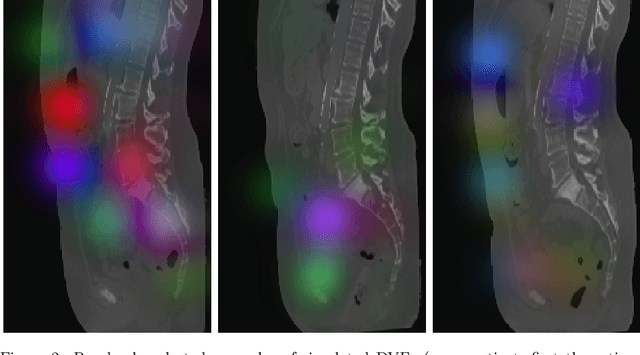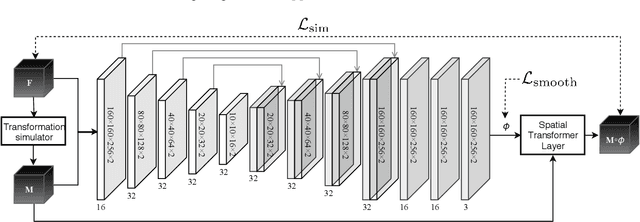Maureen van Eijnatten
Parallel-beam X-ray CT datasets of apples with internal defects and label balancing for machine learning
Dec 24, 2020



Abstract:We present three parallel-beam tomographic datasets of 94 apples with internal defects along with defect label files. The datasets are prepared for development and testing of data-driven, learning-based image reconstruction, segmentation and post-processing methods. The three versions are a noiseless simulation; simulation with added Gaussian noise, and with scattering noise. The datasets are based on real 3D X-ray CT data and their subsequent volume reconstructions. The ground truth images, based on the volume reconstructions, are also available through this project. Apples contain various defects, which naturally introduce a label bias. We tackle this by formulating the bias as an optimization problem. In addition, we demonstrate solving this problem with two methods: a simple heuristic algorithm and through mixed integer quadratic programming. This ensures the datasets can be split into test, training or validation subsets with the label bias eliminated. Therefore the datasets can be used for image reconstruction, segmentation, automatic defect detection, and testing the effects of (as well as applying new methodologies for removing) label bias in machine learning.
3D deformable registration of longitudinal abdominopelvic CT images using unsupervised deep learning
May 15, 2020



Abstract:This study investigates the use of the unsupervised deep learning framework VoxelMorph for deformable registration of longitudinal abdominopelvic CT images acquired in patients with bone metastases from breast cancer. The CT images were refined prior to registration by automatically removing the CT table and all other extra-corporeal components. To improve the learning capabilities of VoxelMorph when only a limited amount of training data is available, a novel incremental training strategy is proposed based on simulated deformations of consecutive CT images. In a 4-fold cross-validation scheme, the incremental training strategy achieved significantly better registration performance compared to training on a single volume. Although our deformable image registration method did not outperform iterative registration using NiftyReg (considered as a benchmark) in terms of registration quality, the registrations were approximately 300 times faster. This study showed the feasibility of deep learning based deformable registration of longitudinal abdominopelvic CT images via a novel incremental training strategy based on simulated deformations.
A Cone-Beam X-Ray CT Data Collection Designed for Machine Learning
May 12, 2019



Abstract:Unlike previous works, this open data collection consists of X-ray cone-beam (CB) computed tomography (CT) datasets specifically designed for machine learning applications and high cone-angle artefact reduction. Forty-two walnuts were scanned with a laboratory X-ray set-up to provide not only data from a single object but from a class of objects with natural variability. For each walnut, CB projections on three different source orbits were acquired to provide CB data with different cone angles as well as being able to compute artefact-free, high-quality ground truth images from the combined data that can be used for supervised learning. We provide the complete image reconstruction pipeline: raw projection data, a description of the scanning geometry, pre-processing and reconstruction scripts using open software, and the reconstructed volumes. Due to this, the dataset can not only be used for high cone-angle artefact reduction but also for algorithm development and evaluation for other tasks, such as image reconstruction from limited or sparse-angle (low-dose) scanning, super resolution, or segmentation.
 Add to Chrome
Add to Chrome Add to Firefox
Add to Firefox Add to Edge
Add to Edge